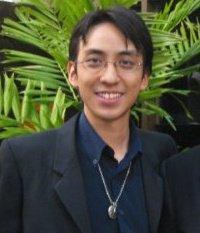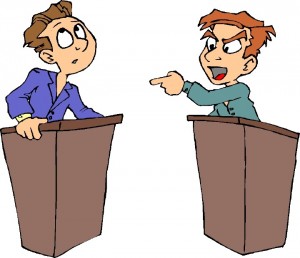
Guest Blogger: Tian Yan
This article is about how I apply the practice of debate and the ideas discussed in Josh Waitzkin’s “The Art of Learning” to my own personal development. Like Josh, I’m writing as honestly as I can, and in doing so, am sharing with you the most personal aspects of my life—things I’ve not even told my closest friends.
My name is Tian Yan. I’m a final-year software engineering undergraduate from Malaysia.
Three years ago, I dropped out of a top-20-world-ranking university because I was failing my academic course. I returned to Malaysia and continued my education in the Asia Pacific University College of Technology and Innovation (UCTI).
For more than a year, I battled personal demons because I got kicked out from the university I worked so hard to enter. I was more disappointed in myself than other people were and I wasn’t sure if I could ever accomplish anything difficult again. Having to restart my education with much younger peers did not help matters.
But then I discovered debating.

A friend asked me to participate in an upcoming debate tournament. I was scared as hell because I had scars from debating back in high school. Fortunately, I quickly agreed to participate before my mind gave me excuses not to go. I needed to regain a sense of accomplishment.
I learned to love the game. We got killed in that first tournament, but I made many close friends who took me under their wings and taught me the foundational skills of debate.
In my second tournament, we broke through the quarter-finals as underdogs. A debate adjudicator thought we had potential and trained us for free in a one-day crash course.
In my third tournament, we gave it everything we had. Even though we had had only four months of debating, we managed to emerge in the octo-finals of the Asian British Parliamentary debating championship. I hadn’t felt so alive in a very long time.
More important, I always meet someone new in every tournament. When we compete against each other, it feels almost like a reunion. In his book, Josh says that “Experience is what you get when you don’t win.” I would add: “Friendships are what you get just for trying.”
I discovered Josh’s “The Art Of Learning” through an interview he did with Dave Lakahni and Dr. Ben Mack. When Josh shared his insights in winning world chess championships and Tai Chi Push Hands tournaments, they resonated with my own debating experience: How Josh found his love for chess and described the experience as “reconnecting with a lost memory”….How he turned down the offer to share the world championship title with a draw because it was not a meaningful win….And how he transfered his excellence from chess to Tai Chi, a sport outside his domain.
All that felt just like my experience with debating.
Like white chess pieces, the Government team has the strategic advantage over the Opposition team in deciding the first move.
As in Tai Chi, we tempt our opponents to overextend their case beyond the limits of their arguments and use their admissions to prove our own case in no definite order.
Like Josh, debaters create chaos in debates and trap our opponents with an unexpected attack.
After studying Josh’s ideas, debating took on a whole different meaning for me. I now see it as a vehicle for developing mental discipline and keeping my mind even and focused during critical moments. The practice influenced my debating philosophy and taught me to love my rival opponents, even the ones who played dirty. In Josh’s words:“Your opponent is your enemy, yet there is no one who knows you more intimately, no one who challenges you so profoundly and pushes you so relentlessly.”
Since we’re stuck without a coach, it can be intimidating to debate against world champions and other seasoned debaters. And so, part of our practice is to learn everything we can from every opportunity we get. The pressure I feel to win lies in the fact that my career started late. I’ve only six months left to debate and if I can accomplish something worthwhile, I will have no reason to believe I cannot master anything difficult again – even though I was a university drop-out once.
Yet, too many peop le enter debate tournaments not to win, but to “not to lose.” And that’s a shame because they never strive to win and therefore miss out on the cumulative benefits that can make them better. Unfortunately, some people see winning as the only option and can never accept their loss. And that’s a shame too because they don’t understand that losses are an important investment in self-discovery. That’s why we always remember our most humbling losses.
le enter debate tournaments not to win, but to “not to lose.” And that’s a shame because they never strive to win and therefore miss out on the cumulative benefits that can make them better. Unfortunately, some people see winning as the only option and can never accept their loss. And that’s a shame too because they don’t understand that losses are an important investment in self-discovery. That’s why we always remember our most humbling losses.
Finally, I learned to ask myself this question: “Does my debating make me a better person?” Being a debater does not mean I have the license to be rude and right all the time. Instead, the practice of debate has only gone to show me how the many months I spent in debate training failed to make me a better person. That’s why my passion for learning to debate better now includes teaching it to others – this makes me feel like a better person and fulfills my sense of accomplishment.
I challenge you to strive for a similar sense of achievement through your own pursuits.